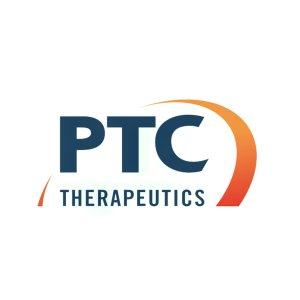PTC Therapeutics Announces FDA Target Regulatory Action Date for Sepiapterin and Lancet Publication of Phase 3 Trial Results
Rhea-AI Summary
PTC Therapeutics announced that the FDA has set a target regulatory action date of July 29, 2025, for the review of the New Drug Application (NDA) for sepiapterin. The NDA was submitted for the treatment of phenylketonuria (PKU) in pediatric and adult patients, covering all age groups and disease subtypes. Additionally, the results of the Phase 3 APHENITY trial were published in The Lancet.
The NDA includes data from the APHENITY trial and the ongoing open-label extension study, which shows the durability of sepiapterin's effect and patients' ability to liberalize their diet while maintaining phenylalanine (Phe) control. Recent results indicate that approximately 60% of subjects achieve protein intake above the age-adjusted recommended daily allowance for an unaffected individual while maintaining Phe levels < 360 μmol/L.
Positive
- FDA set a target regulatory action date for sepiapterin NDA review
- Phase 3 APHENITY trial results published in The Lancet
- NDA covers treatment for all age groups and PKU subtypes
- Open-label extension study shows durability of sepiapterin's effect
- 60% of subjects achieve higher protein intake while maintaining Phe control
Negative
- Standard review timeline for FDA, potentially longer approval process
News Market Reaction – PTCT
On the day this news was published, PTCT declined 4.04%, reflecting a moderate negative market reaction.
Data tracked by StockTitan Argus on the day of publication.
"The Lancet publication reflects the promising and transformative nature of the data collected to date on sepiapterin and the therapy's potential to fill the persistent and significant unmet medical need for PKU patients," said Matthew B. Klein, M.D., Chief Executive Officer of PTC Therapeutics.
The sepiapterin NDA includes the results from the Phase 3 APHENITY trial discussed in The Lancet publication, as well as data from the ongoing APHENITY open-label extension study, which provides evidence of the durability of effect of sepiapterin and the ability of patients to liberalize their diet and still maintain control of phenylalanine (Phe) levels. The most recent results from the Phe tolerance assessment demonstrate that approximately
About Sepiapterin
Sepiapterin (formerly PTC923), an oral formulation of synthetic sepiapterin, has a dual mechanism of action to increase activity of the phenylalanine hydroxylase (PAH) enzyme. First, sepiapterin is a precursor compound that is rapidly absorbed and converted intracellularly to tetrahydrobiopterin (BH4), a critical cofactor of PAH. Sepiapterin also has an independent pharmacological chaperone effect, correcting PAH misfolding to enhance the enzyme function. Through this dual mechanism of action, sepiapterin effectively reduces blood phenylalanine (Phe) levels and has the potential to treat a broad range of PKU patients.
About Phenylketonuria
Phenylketonuria (PKU) is a rare, inherited metabolic disease, which affects the brain. It is caused by a defect in the gene that helps create the enzyme needed to break down phenylalanine. If left untreated or poorly managed, phenylalanine – an essential amino acid found in all proteins and most foods – can build up to harmful levels in the body. This causes severe and irreversible disabilities, such as permanent intellectual disability, seizures, delayed development, memory loss, and behavioral and emotional problems. Newborns with phenylketonuria initially don't have any symptoms, but symptoms are usually progressive, and damage caused by toxic levels of phenylalanine in the first few years of life is irreversible. Diagnosis of phenylketonuria usually takes place during newborn screening programs. There are an estimated 58,000 people with phenylketonuria globally.
About PTC Therapeutics, Inc.
PTC is a global biopharmaceutical company focused on the discovery, development and commercialization of clinically differentiated medicines that provide benefits to children and adults living with rare disorders. PTC's ability to innovate to identify new therapies and to globally commercialize products is the foundation that drives investment in a robust and diversified pipeline of transformative medicines. PTC's mission is to provide access to best-in-class treatments for patients who have little to no treatment options. PTC's strategy is to leverage its strong scientific and clinical expertise and global commercial infrastructure to bring therapies to patients. PTC believes this allows it to maximize value for all its stakeholders. To learn more about PTC, please visit us at www.ptcbio.com and follow us on X, Facebook, Instagram and LinkedIn.
For More Information:
Investors:
Investor Relations
+1 (908) 912-9848
ir@ptcbio.com
Media:
Jeanine Clemente
+1 (908) 912-9406
jclemente@ptcbio.com
Forward-Looking Statement
This press release contains forward-looking statements within the meaning of The Private Securities Litigation Reform Act of 1995. All statements contained in this release, other than statements of historic fact, are forward-looking statements, including statements regarding: the future expectations, plans and prospects for PTC, including with respect to the expected timing of regulatory submissions and responses, commercialization and other matters with respect to its products and product candidates; PTC's strategy, future operations, future financial position, future revenues, projected costs; the extent, timing and financial aspects of our strategic pipeline prioritization and reductions in workforce; and the objectives of management. Other forward-looking statements may be identified by the words, "guidance", "plan," "anticipate," "believe," "estimate," "expect," "intend," "may," "target," "potential," "will," "would," "could," "should," "continue," and similar expressions.
PTC's actual results, performance or achievements could differ materially from those expressed or implied by forward-looking statements it makes as a result of a variety of risks and uncertainties, including those related to: the outcome of pricing, coverage and reimbursement negotiations with third party payors for PTC's products or product candidates that PTC commercializes or may commercialize in the future; expectations with respect to sepiapterin, including any regulatory submissions and potential approvals, commercialization, the potential achievement of development, regulatory and sales milestones and contingent payments that PTC may be obligated to make; significant business effects, including the effects of industry, market, economic, political or regulatory conditions; changes in tax and other laws, regulations, rates and policies; the eligible patient base and commercial potential of PTC's products and product candidates; PTC's scientific approach and general development progress; and the factors discussed in the "Risk Factors" section of PTC's most recent Annual Report on Form 10-K, as well as any updates to these risk factors filed from time to time in PTC's other filings with the SEC. You are urged to carefully consider all such factors.
As with any pharmaceutical under development, there are significant risks in the development, regulatory approval and commercialization of new products. There are no guarantees that any product will receive or maintain regulatory approval in any territory, or prove to be commercially successful, including sepiapterin.
The forward-looking statements contained herein represent PTC's views only as of the date of this press release and PTC does not undertake or plan to update or revise any such forward-looking statements to reflect actual results or changes in plans, prospects, assumptions, estimates or projections, or other circumstances occurring after the date of this press release except as required by law.
![]() View original content:https://www.prnewswire.com/news-releases/ptc-therapeutics-announces-fda-target-regulatory-action-date-for-sepiapterin-and-lancet-publication-of-phase-3-trial-results-302275590.html
View original content:https://www.prnewswire.com/news-releases/ptc-therapeutics-announces-fda-target-regulatory-action-date-for-sepiapterin-and-lancet-publication-of-phase-3-trial-results-302275590.html
SOURCE PTC Therapeutics, Inc.







